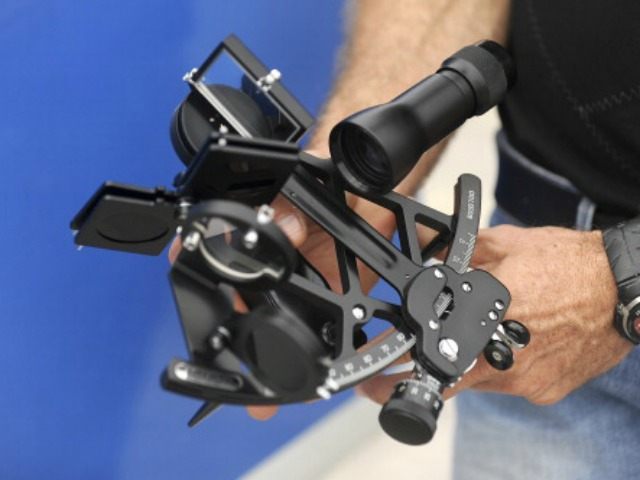The Washington Post notes the return of old-fashioned sextant navigation to the U.S. Naval Academy as one example of how governments around the world are dusting off archaic procedures to relieve cyber-security fears:
“We went away from celestial navigation because computers are great,” Lt. Cmdr. Ryan Rogers, the deputy chairman of the academy’s Department of Seamanship and Navigation, told the Gazette. “The problem is, there’s no backup.”
For now, the training is limited: Just a three-hour course covering the basics. But it’s part of a larger trend.
As governments grapple with the rise of threats in cyberspace — and increasingly realize that they may not be able to stop all of them — old-fashioned techniques are being dusted off as a fail-safe. A security force that guards high-ranking Russian officials, for instance, reverted to using typewriters after revelations about U.S. digital spying capabilities, local news outlets reported. German officials have considered a similar move.
After the Naval Academy cut celestial navigation training, the practice began to peter out. It ended for the Navy at large in 2006, but was brought back for ship navigation officers in 2011. The Navy is now rebuilding a program for all enlisted ranks, the Capital Gazette reported.
Imagine sailors navigating a nuclear aircraft carrier by sextant, after its computers have been hacked.
It calls to mind the 2004 reboot of the sci-fi TV series Battlestar Galactica, in which a space-faring battleship survived a combined military assault and cyber-war attack (from a race of killer robots) by resorting to old-fashioned analog systems, including a heavy reliance upon paper documents, and the verbal transmission of information between officers. (And then the enemy found a way to hack that, by creating machines that looked like people. There might be some useful cyber-warfare lessons in that story…)
There are also echoes of the mid-2000s spam panic in these cyber-war fears. There was a time when companies were thinking about shutting down their email systems, or even disconnecting their networks from the Internet, because they couldn’t cope with the tidal wave of unsolicited “spam” emails slamming into them every day. Corporate executives and IT managers spoke of inboxes that filled up with hundreds of junk emails every morning, consuming many man-hours of work to locate meaningful messages and clean out the spam.
The spam peril was alleviated by a number of measures, including crackdowns on spam generators, better email filters, and faster computerized infrastructure. When messages could be downloaded, scanned, sorted, and stored more quickly, the sense that networks were crumbling under the onslaught was diminished.
The new cyber-security menace might not allow for such graceful solutions. It’s been building for a long time, accompanied by constant warnings from security experts that the defenders were losing in the battle against hackers, and the margin of defeat was growing larger.
Security experts have always complained about the initiative resting with attackers in cyber war; the good guys are forever responding to whatever new intrusive measures hackers have devised. As consumer appetites for new software and frequent updates have increased, more vulnerabilities and “zero-day exploits” have appeared.
The power of the Internet is also its weakness, as universally inter-operable systems and standardized communications yield more opportunities for bad actors to wreak havoc. If the world was filled with thousands of networks that couldn’t talk to each other, the potential for viral infestations would be reduced, hacking for profit would become a lot harder, and hacking for fun would be much less amusing… but of course, that would also make the Internet far less useful for productive ends.
The notion of using analog backups – or, as security experts suggested to the Washington Post, mixing analog and human systems into computerized infrastructure to create unhackable break points in the flow of data – is not really new. Most people have a notebook where they keep all their passwords written down, for example. That’s an example of using low tech to make high tech more secure.
If a list of passwords is unwisely stored in a networked electronic device, those passwords could be hacked and stolen, but nobody can steal data from a notebook without breaking into the user’s home and stealing the book. That’s an order of magnitude more difficult and dangerous than computerized data theft.
It feels as if the Information Age is trembling on the verge of some catastrophe that will make us rethink the way everything has been restructured to incorporate high-speed Internet access. Perhaps that process has already begun, with the high-profile hacking incidents which have dominated headlines over the past few years. It’s a pity that we must think so seriously about sacrificing speed and power for slow security, at the very moment a revolution in network power is opening new frontiers of knowledge, communication, productivity, and convenience.

COMMENTS
Please let us know if you're having issues with commenting.